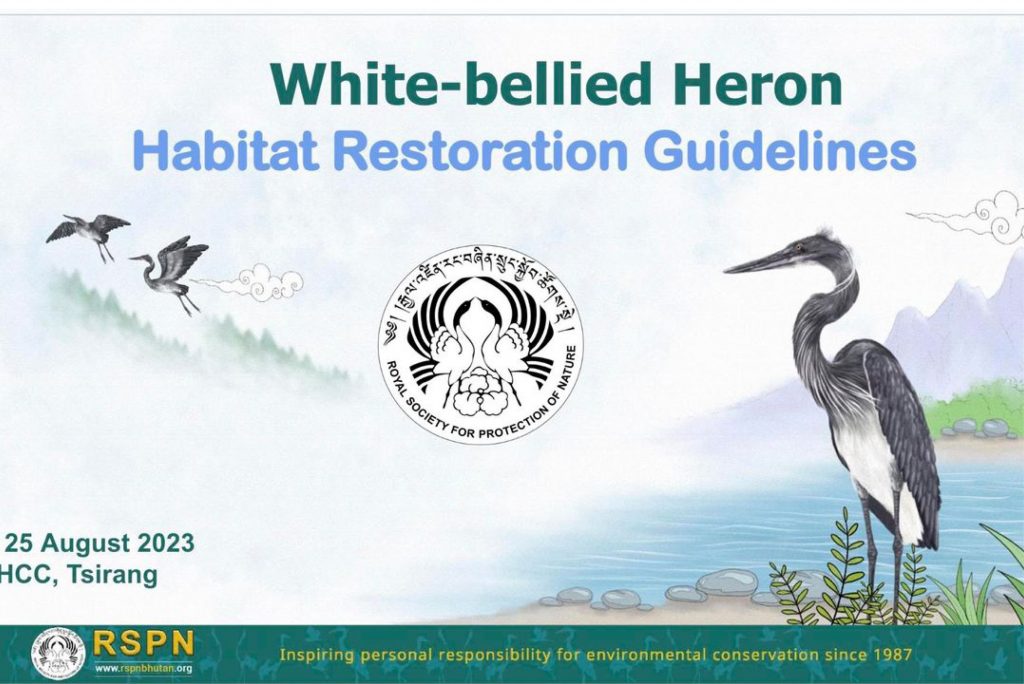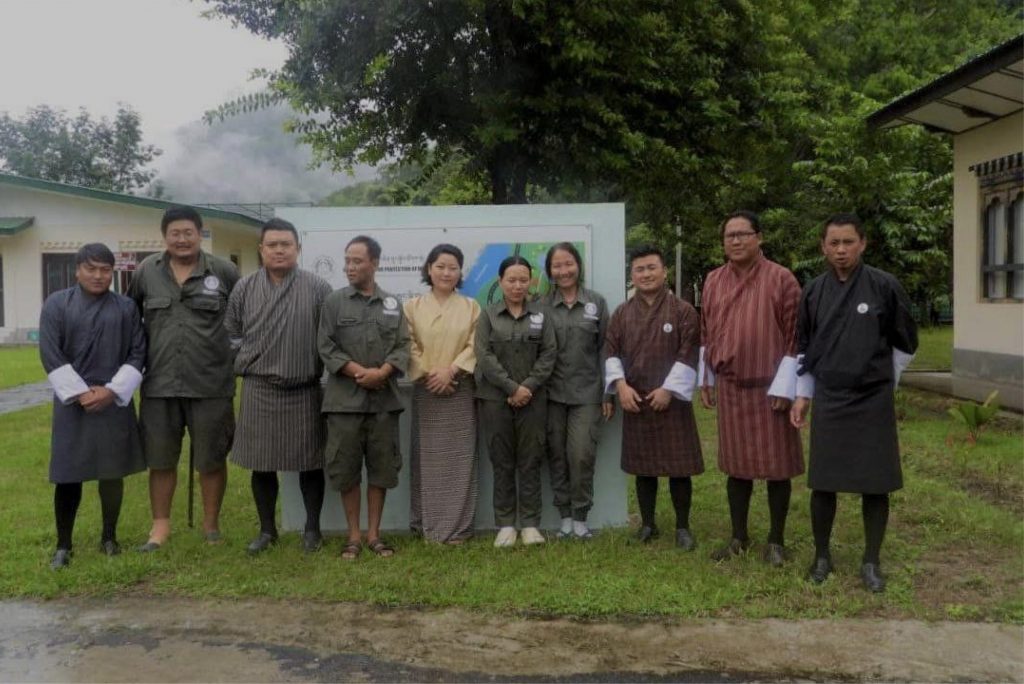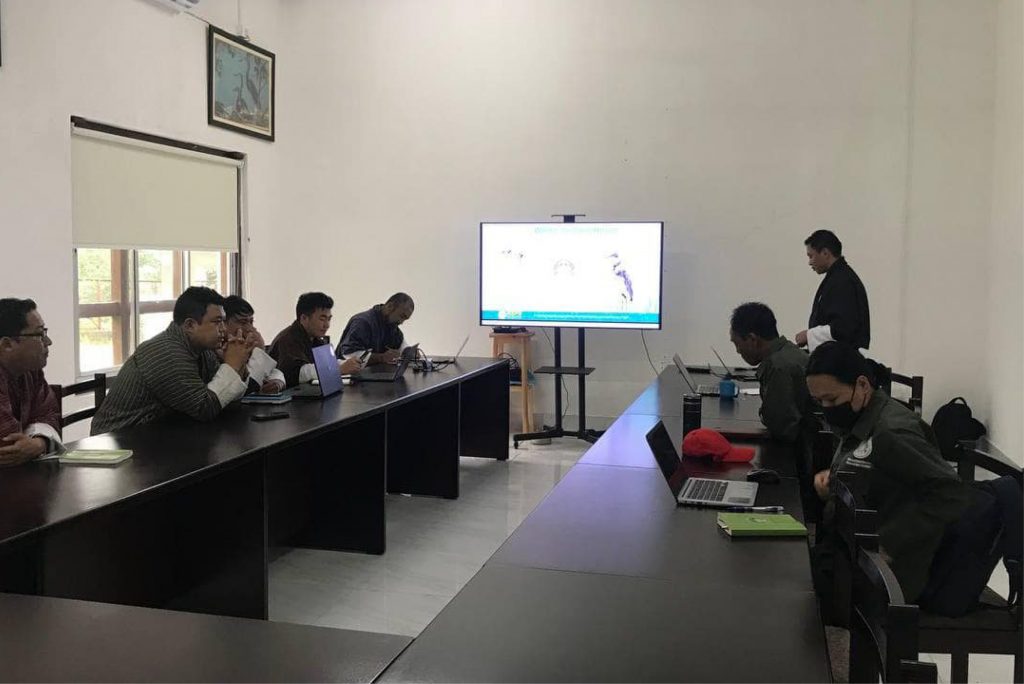The degradation of habitats or ecosystems will not only impact the survival of White-bellied Heron(WBH) and other associated wildlife species, there will also be a huge implication for the livelihood of the community depending on a particular ecosystem. Therefore, the sustainable management of habitat is critical for having unwavering benefits in enhancing the socio-economic condition of the communities and saving the species like Critically Endangered WBH from extinction.
From discussing the ways and means to diversify the livelihood of communities residing along the WBH habitats that will abate the threats to WBH and to enhance the synergy among the relevant stakeholders, the intense discussion is currently being initiated during the ongoing consultation meeting happening at White-bellied Heron Conservation Centre in Tsirang. This consultation is aimed at enhancing further partnership among the relevant organizations to restore the degraded and disturbed WBH habitats that will benefit the local community and the heron bird.
Through the consultation process, backed by scientific research, ecological principles, and an understanding of the specific needs of WBH species, guidelines that will be important for the restoration of degraded and disturbed areas will be developed for the perusal of future conservation projects. The two-day workshop happening from today is attended by officials from the Department of Forest and Park Services, Green Bhutan Corporation Limited, Punatshangchhu Hydro Power Authority I and II, and staff of RSPN.
It is funded by the Federal Ministry for the Environment, Nature Conservation, Nuclear Safety and Consumer Protection (BMUV), Germany through International Climate Initiative (IKI) with co-funding from MAVA Foundation, Switzerland and the Royal Society for Protection of Nature (RSPN).Read more at : https://www.rspnbhutan.org/iki/



Copyright © 2026 RSPN All Rights Reserved